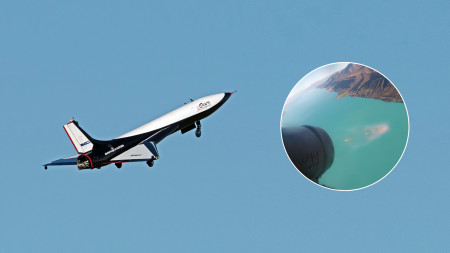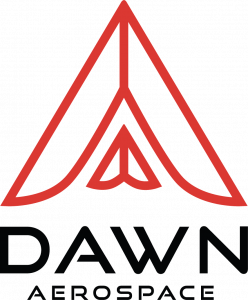Rocket-Powered Spaceplane Takes Flight

CHRISTCHURCH, New Zealand, April 5, 2023 (Newswire.com) - Dawn Aerospace, a space transportation company with operations in New Zealand, the Netherlands, and the United States, today announced the successful completion of the first rocket-powered flight campaign of its spaceplane, the Mk-II Aurora. The flights occurred at Glentanner Aerodrome on 29, 30, and 31 March.
Dawn is already the fastest-growing supplier of green in-space propulsion, with over 15 customers in Europe, Asia, and the USA and hardware on 11 operational satellites. The accomplishment announced today signifies a major milestone in the company's mission to revolutionize space access as well, and thus provide end-to-end space transportation.
The Mk-II Aurora had previously been tested using surrogate jet engines, while last week's campaign was the first conducted under rocket power. All test objectives were achieved.
The Mk-II Aurora is designed for aircraft-like operations and is capable of flying multiple times a day. Unlike traditional rockets, Dawn vehicles take off and land horizontally on a runway and do not require a dedicated launch pad.
Dawn CEO Stefan Powell said, "To have demonstrated rapid reusability in the first tests is proof of our core philosophy, and confirmation that rocket-powered vehicles can be operated just like commercial jet aircraft. This fact allows us to rapidly test now, but in the future, it will completely revolutionize the economics of space access."
"These flights were a monumental achievement for Dawn Aerospace, and the result of years of hard work from the team. After conducting three tests in three days, we believe Mk-II is the most rapidly reusable rocket-powered aircraft in operation," he said.
The flights aimed to validate key systems and capabilities, such as the rocket engine, rather than striving for maximum speed or altitude. Future tests will gradually increase speed and altitude in a 'build-up' approach. During commercial operations, the Mk-II Aurora will fly to 100 km altitude and aims to become the first vehicle capable of such flights twice in a day, laying the foundation for a fully and rapidly reusable first-stage booster.
Initial flights reached altitudes and speeds similar to those demonstrated in previous test flights under jet power, approximately 6,000 feet and 170 knots.
Upon the successful completion of the Mk-II Aurora program, Dawn Aerospace plans to develop the Mk-III, a two-stage orbital vehicle capable of carrying over 1 ton on a suborbital flight or delivering a 250 kg satellite to LEO with an expendable second stage.
"The vast majority of our industry's carbon footprint is created in the manufacturing of rockets, not the fuel efficiency. Our orbital vehicle, Mk-III, is designed to be 96% reusable. This is key to delivering on our vision of a sustainable and future-proof space industry," said Powell.
Read Stefan Powell's CEO statement here.
Source: Dawn Aerospace
